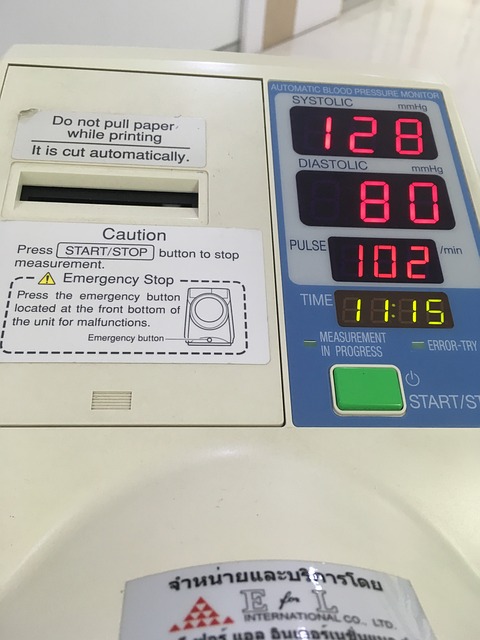Home health check-ups, including the UK Ferritin Blood Test, offer a convenient and accessible way to monitor overall well-being. This test measures iron storage protein ferritin, helping to identify and manage conditions like anemia early through simple dietary changes or medical interventions. By providing prompt results with detailed explanations, individuals can take charge of their health and enable immediate action if necessary.
Staying on top of your health has never been easier with home health check-ups, offering a convenient and comfortable way to monitor your overall well-being. This comprehensive guide explores the benefits of these at-home assessments, focusing on the UK Ferritin Blood Test as a key component in a full evaluation. Learn how to prepare for the test and interpret your results, empowering you to take charge of your health. Discover the role this simple yet powerful tool plays in navigating modern healthcare.
- Understanding Home Health Check-ups: Benefits and Convenience
- The Role of UK Ferritin Blood Test in Comprehensive Assessment
- How to Prepare for and Interpret Your Home Health Results
Understanding Home Health Check-ups: Benefits and Convenience
Home health check-ups offer a convenient and accessible way to monitor your overall well-being, especially in today’s fast-paced world where time constraints can often get in the way of regular medical appointments. This innovative approach allows individuals to take charge of their health by providing quick and easy tests that can be performed in the comfort of your own home. One such test gaining popularity is the UK Ferritin Blood Test, which measures the level of ferritin, a protein that stores iron in the body. This simple procedure offers numerous advantages for maintaining optimal health.
By eliminating the need to travel to a clinic or hospital, home health check-ups save time and often reduce anxiety associated with medical visits. The convenience extends beyond just the test itself; it includes receiving results promptly, often with detailed explanations, enabling individuals to take immediate action if necessary. Moreover, regular home check-ups can help identify potential health issues early on, making treatment more effective and less invasive. This proactive approach is particularly beneficial for managing conditions like anemia, as indicated by low ferritin levels, which can be addressed through simple dietary changes or medical interventions.
The Role of UK Ferritin Blood Test in Comprehensive Assessment
General health check-ups at home have become increasingly popular, offering convenience and accessibility to individuals who might otherwise face barriers to regular medical appointments. One vital component in a comprehensive assessment is the UK Ferritin Blood Test. This test plays a crucial role in evaluating iron stores within the body, which is essential for overall well-being. Iron deficiency, often indicated by low ferritin levels, can lead to fatigue, weakness, and decreased cognitive function.
The UK Ferritin Blood Test provides valuable insights into an individual’s nutritional status, helping healthcare professionals identify potential health issues early on. By analysing ferritin levels, medical experts can assess the risk of anaemia and other iron-related disorders. This proactive approach to healthcare enables timely interventions and promotes long-term wellness, ensuring that individuals receive personalised guidance for maintaining optimal health at home.
How to Prepare for and Interpret Your Home Health Results
Preparing for a UK ferritin blood test at home is straightforward. First, ensure you fast for at least 10 hours before the test to get accurate results. On the day, wash your hands thoroughly and avoid any physical activity that might increase your heart rate. You’ll need to provide a blood sample, usually via a finger prick or venipuncture (vein puncture). It’s crucial to follow the instructions provided with your at-home testing kit carefully. Once you’ve collected the sample, return it to the lab as instructed for processing.
Interpretation of results is key to understanding your general health. In the UK, ferritin levels are typically measured in micrograms per litre (µg/L). Normal ranges vary slightly between labs but generally fall between 20-250 µg/L. Lower levels may indicate iron deficiency or anaemia, while higher levels could signal chronic inflammation or conditions like haemochromatosis. Consult your healthcare provider to discuss your specific results and any necessary follow-up tests or treatments based on these findings.
General health check-ups at home, aided by tools like the UK Ferritin Blood Test, offer unparalleled convenience and accessibility. By incorporating these tests into your routine, you gain valuable insights into your overall well-being. With proper preparation and interpretation of results, you can proactively manage your health and make informed decisions. Embrace the benefits of home health check-ups to take control of your wellness journey.
